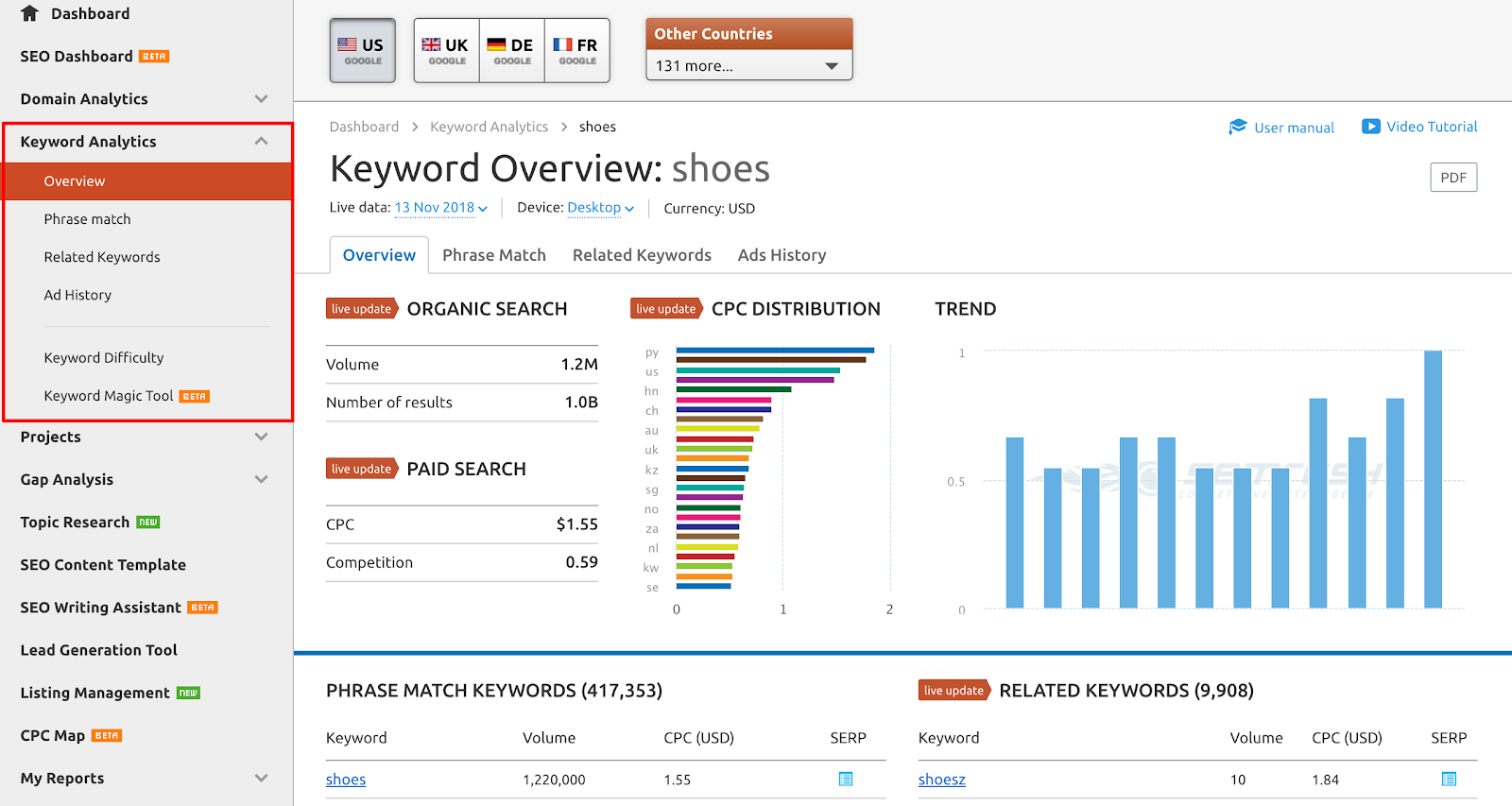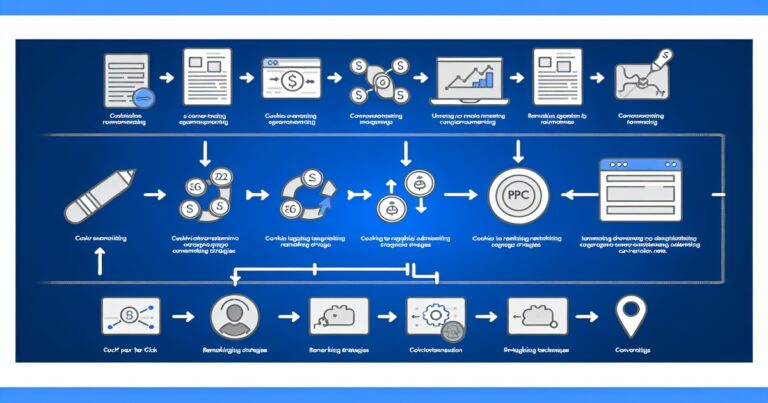Are you running an e-commerce business? If so, you are already well aware of the challenges in driving traffic and sales to your website. This is where Magento SEO comes in – as one of the most popular e-commerce platforms available today, it provides a comprehensive solution for businesses looking to launch and grow their online stores.
At its core, Magento is an open-source platform that allows businesses of all sizes to build scalable, customizable online stores quickly. From product management to shipping and payment options, Magento offers many features enabling businesses to streamline operations and grow their customer base.
However, simply having a Magento store is not enough – you must ensure your website is optimized for search engines. This is where SEO comes in.
Why SEO Matters for E-Commerce Businesses
SEO (search engine optimization) refers to optimizing your website to rank higher on search engine results pages (SERPs). When done correctly, SEO can help increase your visibility among potential customers actively searching for products like yours.
For e-commerce businesses, mainly, SEO is crucial because it helps drive traffic and sales through organic search. Optimizing your website with relevant keywords and other on-page tactics (more on this later) allows you to attract highly targeted traffic from people further along the purchase funnel and more likely to convert into paying customers.
In addition to driving traffic and sales, SEO helps establish your brand’s credibility and authority. By appearing higher up on SERPs for relevant queries, you signal to potential customers that you are a trustworthy source of information/products within your niche.
Overall, with the power of Magento SEO strategies, you can unlock tremendous potential for growth and success within the competitive world of e-commerce. The following sections will provide a detailed guide to optimizing your Magento store for maximum SEO impact.
Related: Why Your Business Needs Digital Marketing Services

Setting up Your Magento Store for SEO Success
Choosing the Right Hosting Provider
Before you optimize your Magento store, you must ensure you have a reliable hosting provider. A slow website can negatively impact your search engine rankings, so it’s crucial to choose a hosting provider that can handle the demand of your online store. Look for a hosting provider with fast loading times, high uptime rates, and good customer support.
Installing Magento SEO Extensions for SEO Optimization
Once you have chosen your hosting provider, it’s time to install some Magento extensions that will help optimize your website for search engines. Many extensions can help with keyword research, on-page optimization, technical optimization and more. Some popular extensions include MageWorx SEO Suite Ultimate and Mirasvit SEO Suite.
Setting up Your Store Structure and Navigation with SEO in Mind
The structure and navigation of your online store play an important role in how search engines crawl and index your site. It’s essential to create a clear page hierarchy that prioritizes the most critical pages on your website. For example, start with a homepage that links to categories and subcategories of products.
Ensure each page has a unique title tag and meta description to help search engines understand what each page is about. In addition to creating a clear structure for your site navigation, it’s essential to ensure the URLs are optimized for search engines.
Use descriptive words in the URL instead of random numbers or letters so that both users and search engines can quickly identify what each page is about. By setting up your Magento store correctly from the beginning with these critical components in mind – choosing the right hosting provider, installing relevant extensions for SEO optimization purposes, and establishing site navigation structure –, you’ll give yourself an edge over those who neglect these fundamental aspects which contribute to successful eCommerce stores.
Related: Ecommerce SEO Guide For Serious Sellers Who Want To Get Ranked Quickly

Keyword Research for Magento Stores
Understanding how to find the right keywords
Keyword research is perhaps one of the most critical aspects of SEO. It involves identifying and analyzing keywords your potential customers may use to search for products or services online. When finding the right keywords, several tools are available to you.
Google Keyword Planner is popular, but other options like Ahrefs and SEMrush offer similar functionality. These tools provide valuable data, such as search volume and competition levels, that help you pinpoint the most relevant and beneficial keywords for your Magento store.
Analyzing keyword competition and search volume
Once you’ve gathered a list of potential keywords, you must analyze their competition levels and search volumes. High competition levels indicate that many other websites also target those exact keywords, making it harder for your store to rank well in the search results pages.
Search volume indicates how frequently people search for particular phrases or terms, giving you an idea of how much traffic can be driven to your website through those searches. You can identify the best target keywords for your Magento store by balancing high search volumes with low competition levels.
Incorporating keywords into your product descriptions, titles, and meta tags
Now that you have a list of relevant target keywords with high search volumes and low competition levels, it’s time to incorporate them into your product descriptions, titles, and meta tags. This on-page optimization technique helps Google understand what each page on your website is about so that they can show it in their search results when someone types in a related query using one or more of the target keywords identified earlier. A well-optimized product description should contain relevant target keywords without overstuffing them into every sentence; this could result in penalties from Google due to keyword stuffing, a black hat SEO technique.
Similarly, including the target keywords in your product titles and meta tags helps search engines understand the content of your page while also giving users a clear idea of what they can expect to find on that page. Optimizing your Magento store with relevant keywords sets you up for success in the competitive world of e-commerce.
Related: SEO: A Beginner’s Guide to Search Engine Optimization
On-page Optimization Techniques for Magento Stores
Creating unique meta titles and descriptions
Creating unique meta titles and descriptions is one of Magento stores’ most crucial on-page optimization techniques. These are the first things potential customers see on search engine results pages, which can make or break your click-through rate.
Your meta title should be descriptive and concise and include your main keyword at the beginning. The description should also be informative, accurate and include relevant keywords that match the content on your page.
Optimizing product images with alt tags
Optimizing product images with alt tags is another essential on-page optimization technique for Magento stores. Alt tags are descriptions of the images on your website when a user’s browser cannot display them.
They also help search engines understand what an image is about, which can improve your visibility in image search results. Use descriptive alt tags that accurately describe what’s in the image while including relevant keywords.
Writing high-quality product descriptions with relevant keywords
High-quality product descriptions are essential to making sales on an e-commerce website. They help customers understand what they’re buying and help search engines crawl and index your site better if you use relevant keywords within them.
When writing product descriptions, use language that appeals to your target customers and includes essential details such as materials used, dimensions, colour options etc. Optimizing your Magento store’s pages using these techniques will make it easier for users and search engines to understand what you’re selling while increasing visibility in organic search results pages.
Related: Mastering Search Engine Marketing: Boost Your Visibility Online [GUIDE]
Technical Optimization Techniques for Magento Stores
Improving Site Speed through Caching Techniques
Site speed is crucial to the success of any online store, as slow load times can cause frustration and lead to a high bounce rate. One effective way to improve site speed for your Magento store is through caching techniques.
Caching can significantly reduce the time it takes for your website to load by storing frequently accessed data in a cache rather than having to retrieve it from the server every time someone visits your site. Ensure you enable caching on your Magento store by using an extension or working with your hosting provider.
Implementing Structured Data Markup to Enhance Search Results Appearance
Structured data markup is a great way to provide search engines with more information about your products and content. By using structured data markup, you can enhance the appearance of search results by adding rich snippets such as product images, ratings, and price information. This added information can make your listings more eye-catching and trustworthy, increasing click-through rates and ultimately driving more traffic to your website.
Ensuring Mobile Responsiveness
More people are now browsing the web on their mobile devices than ever before. Therefore you must ensure that customers have a good experience browsing your website from their mobile devices.
You could use responsive design techniques or create an entirely separate mobile version of your site depending on what works best for you; these approaches ensure that all page elements are resized appropriately depending on the screen size they are being viewed on. Additionally, make sure all buttons and links are large enough so users can easily tap them with their fingers.
Technical optimization techniques can effectively improve the SEO performance of any e-commerce business running on the Magento platform. By implementing these techniques, such as caching techniques, structured data markup and ensuring mobile responsiveness, you can improve site speed, enhance your search results appearance and ensure that customers have a good experience when browsing your website on their mobile devices.
Related: The Definitive Guide to Pricing SEO Services for Maximum ROI
Link-Building Strategies for Magento SEO
Building quality backlinks from reputable websites in your niche
Link building is a crucial element of search engine optimization, but it’s important to remember that not all links are created equal. Some links can hurt your website’s rankings.
Building high-quality backlinks from reputable websites within your niche is essential. One effective way to do this is to reach out to other websites and offer to write guest blog posts or provide valuable content with links to your website.
Another approach is creating shareable content, such as infographics or industry-specific guides that other websites want to link to. Building relationships with influencers and bloggers within your industry can also be beneficial for generating quality backlinks.
Creating internal links within your website
Internal linking refers to linking pages and posts within your website. This helps establish a clear site structure, improves user experience, and gives search engines a better understanding of the hierarchy and relationship between different pages on your site.
When creating internal links, choosing relevant anchor text (the clickable text containing the hyperlink) that accurately describes the linked page’s content is essential. It’s also important not to overdo it – too many internal links on one page can confuse users and might even result in penalties from search engines.
One effective strategy is to use breadcrumbs – navigational elements that display the path users have taken through a site hierarchy. Breadcrumbs help users visualize where they are within the site structure and provide additional internal links for search engines to follow.
Overall, building high-quality external links and creating relevant internal links are essential to an effective SEO strategy for Magento stores. By following these best practices and staying up-to-date with ongoing changes in search algorithms, you can help ensure that your e-commerce website is optimized for success.
Related: Request a Quote for Search Engine Optimization Services
Measuring and Analyzing Your Results
You’ve worked hard to optimize your Magento store for SEO, and now it’s time to see how your efforts are paying off. You can track website traffic, sales, and conversions using analytics tools like Google Analytics. Analyzing this data can help you identify which strategies are working well and which need improvement.
Using analytics tools to track website traffic
One of the most important metrics to track is website traffic. By monitoring the number of visitors to your site, you can see how well your SEO efforts are driving traffic to your store. You can also see where that traffic comes from – organic search results, social media, or paid advertising.
Tracking sales and conversions
Another key metric to monitor is sales and conversions, which will tell you how many visitors purchase on your site. By setting up conversion tracking in Google Analytics, you can see which pages on your site drive conversions and where people are dropping off in the buying process.
Identifying areas for improvement
Analyzing your data can help you identify areas where you need to improve your SEO strategy. For example, if you’re getting a lot of traffic but not many sales, you may need to focus on improving product descriptions or optimizing checkout pages. On the other hand, if you’re not getting much organic search traffic, it may be time to revisit your keyword research strategy or invest in some link-building efforts.
Conclusion
Measuring and analyzing your Magento SEO performance is crucial for ongoing success. Using analytics tools like Google Analytics, you can track website traffic, sales, and conversions – giving you valuable insights into what’s working well and what needs improvement. Remember that SEO is an ongoing process.
Even after you’ve optimized your store, you’ll need to continue monitoring and tweaking your SEO strategy to stay ahead of the competition. But with the right tools and mindset, you can achieve great results and drive more traffic and sales to your Magento store.









